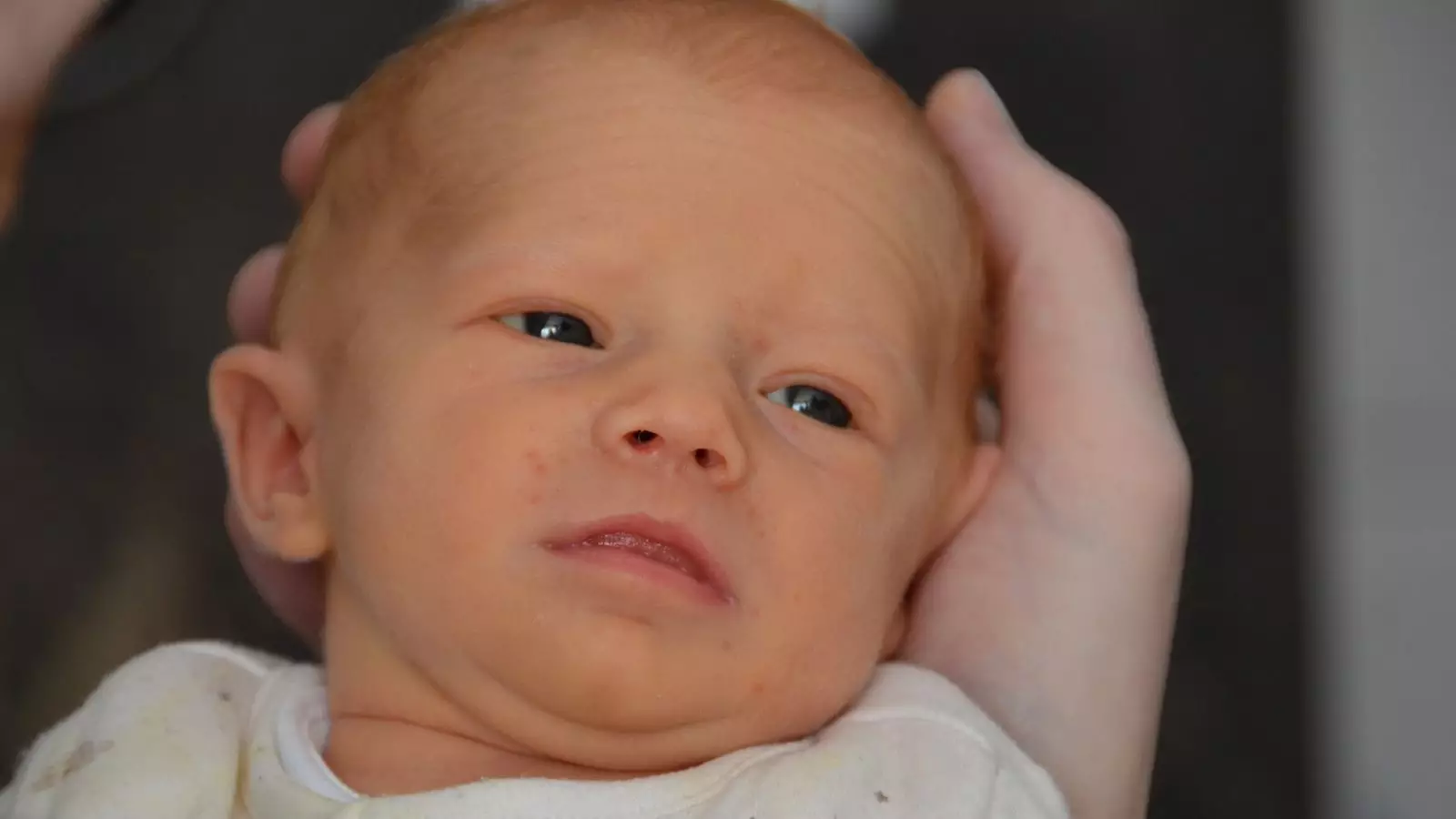In a striking testament to the marvels of modern medicine, a new chapter has begun for reproductive health in the UK. Grace Davidson’s joyous experience of becoming the first woman in the country to give birth following a womb transplant has reignited discussions on fertility, radical medical interventions, and the lengths to which people will go to achieve their dreams of parenthood. With the birth of her daughter, Amy Isabel, the narrative surrounding womb transplants transforms from clinical trials to maternal fulfillment. However, while this triumphant occasion brings immense joy, it also necessitates a reflection on the ethical implications and the future of such revolutionary medical practices.
The Gift of Life: A Sister’s Sacrifice
Grace Davidson’s journey to motherhood wasn’t just a medical baseball swing; it was deeply personal. She received the donated womb from her sister, Amy Purdie, who demonstrated immense generosity and love by offering the very organ that would enable her sister to realize the dream of having a child. This powerful familial bond transcends the conventional understanding of kinship and highlights a heartwarming aspect of the human relationship. Yet, while this heartwarming story showcases profound familial love, it raises questions about the societal expectations and pressures surrounding childbirth and family. Are we, as a society, pushing the boundaries of love just a smidge too far, or does this selfless act embody the purest form of love?
A New Phenomenon for Women With MRKH Syndrome
Grace Davidson’s condition, Mayer-Rokitansky-Kuster-Hauser (MRKH) syndrome, affects one in every 5,000 women, yet many remain unaware of this condition’s existence. The successful womb transplant remains monumental, as it presents a beacon of hope for those who have grappled with the emotional and psychological ramifications of their infertility. This moment can be seen as an uplifting triumph of science—a case where clinical expertise meets personal desire. Yet the narrative isn’t entirely rosy; it begs the question of Accessibility. Feminist discourse in the medical field urgently pushes for equitable access to groundbreaking procedures. Will every woman who desires this hope be able to access these life-changing services? Or will it remain a privilege accessible only to those with financial means?
Exceeding Medical Norms: Emotional Rollercoaster or Ethical Pandora’s Box?
The medical professionals, including Professor Richard Smith and Isabel Quiroga, who pioneered this transplant, have clearly succeeded, but the overwhelming nature of such medical feats opens a Pandora’s Box of ethical dilemmas. In a world where scientific advancements often outpace ethical considerations, how do we set boundaries? The emotional journey of Grace and her husband Angus signifies elation and relief yet starkly reminds us of how far medical science has advanced, often leaving societal norms trailing behind. This breakthrough stirs the pot of ethical debate; at what point do advancements become a responsibility rather than a privilege?
Cultural Implications and Societal Norms
Beyond the medical curtains, the birth of Amy Isabel holds a mirror up to our society, reflecting its stance on motherhood and the complex interplay of medical technology with culture. For many, motherhood symbolizes completeness, yet this highlights a troubling societal trend: the intense scrutiny women face regarding their reproductive choices. In a world still grappling with the stigma of infertility, Grace’s story brings hope but also brings forth a need for a more holistic approach in recognizing that every woman’s path to motherhood differs.
As the world watches a revolutionary birth unfold, let’s not forget that with this newfound hope comes responsibility. This moment encapsulates the duality of joy and concern, unfolding not just a new chapter in medicine, but also a broader dialogue about empathy, accessibility, and ethical boundaries. The birth of baby Amy is a profound sign of progress, yet we must approach this breakthrough with caution, ensuring that hope and scientific advancement do not eclipse compassion and ethics in the journey towards parenthood.

